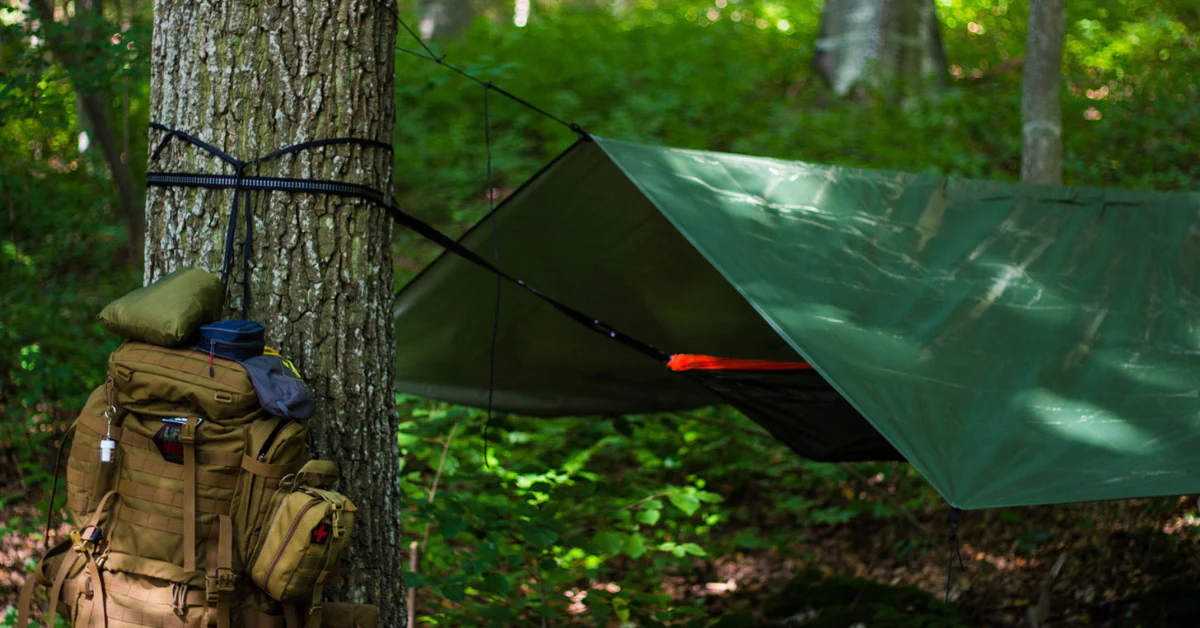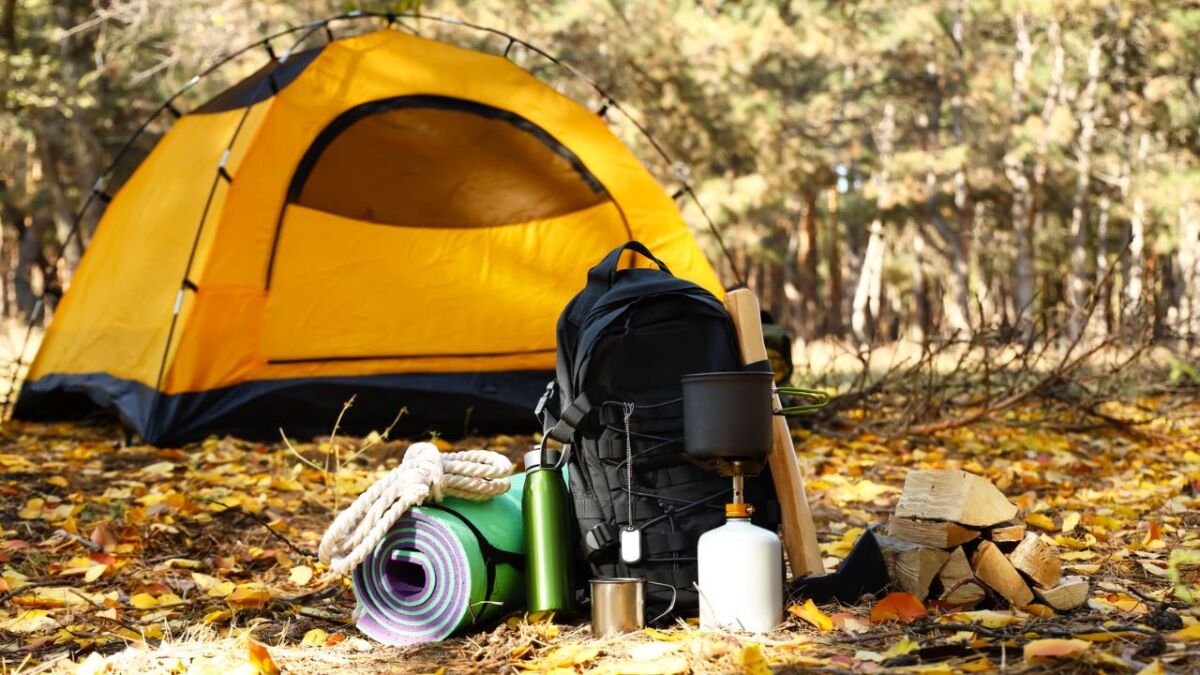Contents
- 1 Preparing for Survival Camping
- 1.1 Essential Gear for Survival Camping
- 1.2 Choosing the Right Clothing
- 1.3 Setting Up a Campsite
- 1.4 Building a Shelter
- 1.5 Starting a Fire
- 1.6 Finding and Purifying Water
- 1.7 Foraging for Food
- 1.8 Navigation and Orientation
- 1.9 Dealing with Wildlife
- 1.10 First Aid and Emergency Response
- 1.11 Staying Safe and Healthy
- 1.12 Building Survival Skills
- 1.13 The Mental Aspect of Survival Camping
- 1.14 Embracing the Adventure
- 2 Author
The concept of survival camping takes the excitement of being outdoors and molds it with life-saving/sustaining abilities.. Camping isn’t exactly breaking a sweat to begin with, but the challenge of surviving in the wild certainly separates glamping from true woodcraft. How to build a survival camping: This article will cover the basics of everything that is required for your next outdoor trip, providing what you need to know about surviving elements and having some good time.
Preparing for Survival Camping

If you want to make sure that your survival should go in a proper manner then preparation is the key yowestogel. Before you head on out, do a quick search of the area so that you can understand what to expect terrain and weather wise! Please ensure that you make, and have a trusted friend or family member in possession of, comprehensive plans ( and details ) And also, be certain that you are physically developed and mentally ready for the forthcoming storm. Some basic survival skills and first aid training can do wonders for your resume as well.
Essential Gear for Survival Camping
Having the right gear is crucial in survival camping. A good-quality, reliable tent or tarp will give you shelter, and a sturdy-structured (or inflated) sleeping bag and pad make it comfortable. A good backpack with enough storage is a must if you want to keep everything with you. Additional provisions that you would require are a multi-tool, a good quality strong knife, compass and map (not on your cell phone), flashlight with additional batteries, stove to cook something on fire or waterproof matches/fire starter. Remember to include a first aid kit and any personal medications.
Choosing the Right Clothing
Dress and groom well for survival camping; Layer, layer and layer again: Keep in mind to adjust the laydown according to weather conditions. # next, pick a breathable wicking layer to keep the sweat far from your skin’I atmospheric insulating PayErs*”…a rag-able water and windproof ouT’ER LAYER*.. Some nice sturdy waterproof boots for those accompanying longer hikes Also, prepare extra socks, gloves and a hat to make sure you can survive the colder nights.
Setting Up a Campsite
Picking the right place to set up camp can make all the difference for your safety and well being! At a flat, dry place that is well away from falling branches or flooding risks. Site should be near to any resource of water, but not too much close that insect or animals problems may occur. Always remove debris from the area before you pitch your tent, and build a windbreak using rocks or logs if it is windy. Remember to always practice Leave No Trace principles so we can keep the environment preserved for future generations.
Building a Shelter
Survival camping is all about building a better shelter. no tent? build my own shelter with whats around me. Even a simple lean-to or debris hut will offer sufficient protection against those elements. Make a strong frame using branches, leaves and other plant life. #7. Make sure your shelter is well ventilated and insulated so you can stay warm and breathe easily.. Also however, always ready with a plan b if your main campsite becomes unsuitable due to falling trees or huntresses.
Starting a Fire
Starting a fire is an essential survival skill. A fire provides warmth, allows you to cook food, and can signal for help. Use dry wood and tinder to start your fire, and build it in a safe location away from flammable materials. Practice different fire-starting methods, such as using waterproof matches, a fire starter, or a flint and steel. Always monitor your fire and extinguish it completely before leaving the campsite.
Finding and Purifying Water

Access to clean water is crucial for survival camping. Identify natural water sources such as streams, rivers, or lakes. However, always purify water before drinking to avoid harmful pathogens. Boiling water is the most reliable method, but you can also use water purification tablets or a portable water filter. Carrying a collapsible water container allows you to store and transport water easily.
Foraging for Food
In a survival situation, knowing how to forage for food can be lifesaving. Learn to identify edible plants, berries, and nuts in the region you are camping. Fishing and trapping small game are also effective ways to procure food. However, always adhere to local regulations and practice sustainable foraging. Carrying lightweight, non-perishable food items such as dried fruits, nuts, and jerky can provide additional nutrition.
Navigating in the wilderness requires basic orientation skills. Always carry a map and compass, and know how to use them effectively. Learn to identify natural landmarks and use them to orient yourself. In addition, practice reading the sun and stars for direction. GPS devices can be useful, but always have a backup plan in case of device failure. Regularly check your position to avoid getting lost.
Dealing with Wildlife
Encountering wildlife is common during survival camping. While most animals are not dangerous, it’s important to know how to respond to potential threats. Store food securely to avoid attracting animals, and never feed wildlife. Make noise while hiking to alert animals of your presence. If you encounter a predator, stay calm, make yourself appear larger, and slowly back away without turning your back. Always respect wildlife and observe from a safe distance.
First Aid and Emergency Response
Accidents can happen, so being prepared with first aid knowledge is essential. Carry a well-stocked first aid kit and know how to treat common injuries such as cuts, burns, and fractures. Learn basic CPR and emergency response techniques. In case of a severe injury or medical emergency, know how to signal for help. Use a whistle, mirror, or brightly colored clothing to attract attention. Having a personal locator beacon (PLB) can also be lifesaving.
Staying Safe and Healthy

Maintaining your health and safety is crucial during survival camping. Stay hydrated, eat nutritious food, and get adequate rest. Protect yourself from the sun by wearing sunscreen and a hat. Be mindful of hygiene; wash your hands regularly and keep wounds clean. Avoid risky behaviors and always prioritize your safety. Staying alert and cautious can prevent accidents and ensure a successful camping experience.
Building Survival Skills
Building and practicing survival skills is essential for successful survival camping. Skills such as fire-making, shelter-building, and foraging require practice and patience. Consider attending survival courses or workshops to enhance your knowledge and abilities. Regularly practicing these skills in a controlled environment will prepare you for real-life situations. Confidence in your skills can make a significant difference in a survival scenario.
The Mental Aspect of Survival Camping
Survival camping also challenges your mental fortitude. Staying calm and positive in difficult situations is crucial. Practice mindfulness and stress-management techniques to maintain mental clarity. Having a positive attitude and a problem-solving mindset can help you overcome obstacles. Remember, survival is as much a mental challenge as it is a physical one.
Embracing the Adventure
In conclusion, survival camping is a rewarding and enriching experience that combines adventure with essential survival skills. Proper preparation, the right gear, and knowledge of survival techniques are key to a successful trip. By embracing the challenges and learning from each experience, you can enhance your self-sufficiency and connection with nature. Survival camping not only tests your limits but also provides a profound sense of accomplishment and adventure.
Also read other interesting articles about Sannakji Sensations: Experience the Unique Thrill of Korea’s Live Octopus Delight here



